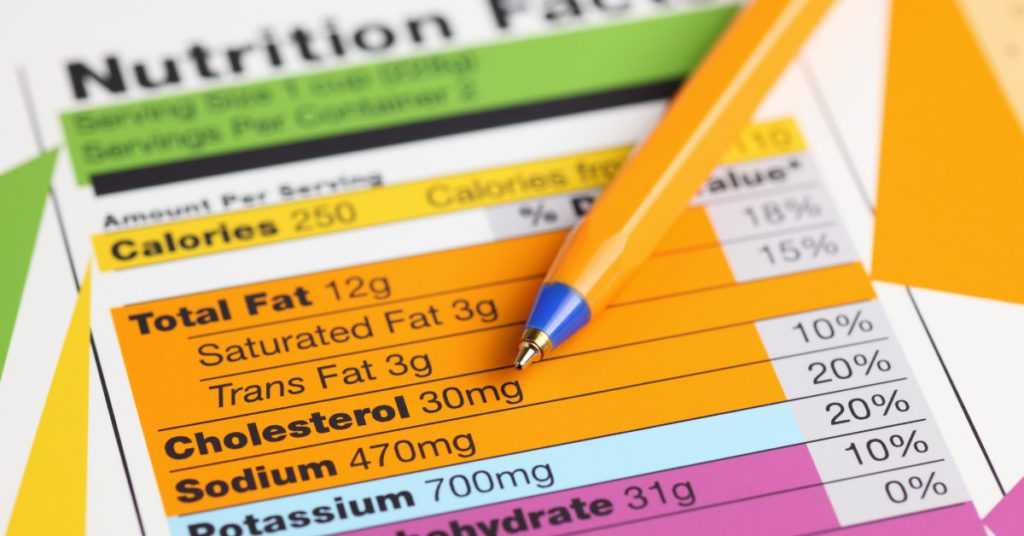Dietetics is the study of the effects of food and nutrition on human health. It places a strong emphasis on public health and is dedicated to educating people about the importance of making healthy dietary choices. You should give this article a read if you are wondering how to become a Dietitian in Pakistan.
Who is a Dietitian?
Dietitians are professionals who help people improve their health by utilizing the knowledge of nutrition and food science. Registered Dietitians can assist individuals in making healthy and positive lifestyle changes by formulating practical diet solutions. The responsibilities of RDNs include:
- Assessing the nutritional and dietary needs of patients or clients
- Providing counseling regarding health and nutrition issues
- Developing diet and nutrition plans according to the client/patients needs and budget
- Evaluating eating habits and making improvements in meal plans
- Promoting nutrition awareness among the population by giving lectures or speaking about the relationship between diet and health issues
- Creating nutritional guidelines for people
- Keeping yourself updated with or contribute to the latest food and nutritional science research. Being updated about the latest research in the field
- Keeping track of the client/patients progress


Dietitian vs. Nutritionist
The main difference between dietitians and nutritionists is that RDs have more education and credentials. You can call yourself a nutritionist without any formal nutrition education, training, licensing, or certification in some places, but it is illegal to call yourself a dietitian without proper credentialing. Some other differences include:
- Work: Dietitians use Medical Nutrition Therapy to treat patients with specific diseases or disorders while a nutritionist provides health-related guidelines to the general population
- License: Dietitians are registered by a specific government body after taking a proper test. On the other hand, there is no test in Pakistan to become a registered nutritionist.
- Place of work: Registered dietitians usually work in medical settings like hospitals or healthcare centers, while nutritionists work in commercial settings like gyms, wellness centers, or restaurants
- Education: While both study the same subjects, in the beginning, dietitians specialize in medical nutrition therapy or therapeutic diets, and nutritionists opt for subjects like nutrition education, sports nutrition, or nutrition planning and assessment
Read more about the Top 10 Dietitians in Karachi here.
Pathway of becoming a Registered Dietitian (RDN) in Pakistan
If you are interested in becoming a dietitian in Pakistan, then the following steps can effectively guide you through the whole process:
1. Completing High School Education
This refers to the education obtained till Matric or O levels. To become a dietitian, it is important to select biology because the concepts of food science and human Nutrition are related to the physiology and anatomy of the human body. So choosing biology in matric or O levels will give you a basic overview of the processes occurring in the body.
2. Intermediate/FSc. Pre-Medical
Since dietitians are medical experts, it is mandatory to choose FSc. Pre-Medical or science subjects (Chemistry/Biology/Food and Nutrition) during your A levels. This is compulsory because universities and colleges that offer the degree of dietetics and Nutrition only accept students with these degrees. Being a scientific subject, the metric for this degree is usually relatively high, so you should work hard and score well (at least 80%) during your intermediate studies.
3. 4-year University Degree
The universities in Pakistan are offering a 4-year BSc. Honors degree in Dietetics or Nutritional Sciences. It is highly recommended to check if your course and university are recognized by the Higher Education Commission Pakistan before starting. All universities have different admission criteria’s and most of them prefer high achieving students. In this 4-year degree, you start from the basics of human nutrition and food science and eventually learn about the dynamics of utilizing this knowledge to treat patients with medical nutrition therapy.
4. Training/Work Experience
To become a Registered Dietitian/Nutritionist, you must complete supervised practice/training/internship at a healthcare facility, community agency, or any other institute/organization while studying or after. For Dietitians who work in clinical settings, at least six months of clinical experience is required. For Nutritionists in Public Health, at least six months of experience in a public health setting or teaching foods and Nutrition in a postsecondary teaching institute is compulsory.
5. Becoming a Registered Dietitian (Exam)
Pakistan Nutrition and Dietetic Society have developed a registration exam to certify practicing dietitians and nutritionists based on the Pakistan Accreditation of Nutrition and Dietetic Professionals (PANAP) guidelines. Every year, this exam is held. Applicants who do not meet the specified degree criteria may be considered if they can demonstrate that they have acquired all of the required competencies through an accredited degree program with supervised training under Registered Dietitians/Nutritionists. Those who pass the exam are certified as PNDS Registered Nutritionist/Dietitians for two years.
6. Masters Ph.D. or Diplomas in Dietetics and Nutrition
Even though you can become a registered dietitian after completing your BSc (honors), many people like to continue their studies by doing Masters/M.Phil. and then Ph.D. in this field. It further adds to their knowledge and increases their job opportunities. Some people even enroll in online diplomas to earn nutrition credentials from universities in other countries.


Learn more about How a Nutritionist helps achieve Fitness Goals here.
How long does it take to become a Registered Dietitian?
After doing intermediate-level studies, it takes around 5 to 6 years to become a Registered Dietitian.
Other Career Options for Dietitians
The field of Nutrition and dietetics is a growing profession with many career possibilities. Whichever option you choose, you’ll share your knowledge of food and nutrition to help people make healthy food choices. After completing your studies in the field of nutrition and dietetics, you might not be interested in doing a job in a medical or healthcare setting like a hospital. In this case, there are many other career paths that you can choose from, including:
- Sports Nutrition: Sports nutrition and wellness programs providing nutrition services educating clients about the connection between nutrition, physical activity, and health.
- Food/Hotel Industry: Food and nutrition-related business and industries in communications, consumer affairs, public relations, marketing product development.
- Private Clinic: Private practice, working under contract with health care or food companies or own business
- Culinary Field: Consulting with restaurants and culinary schools.
- Food Authority: Working as a food inspector for the government to regulate the quality of various food-related businesses
- Quality Assurance: Working to control the nutritional quality of food being produced in factories or hotels.
- Teaching: Working as a lecturer or Professor in public or private colleges and universities.
What is the salary of Dietitians in Pakistan?
A Dietitian in Pakistan typically earns around 156,000 PKR per month. Salaries range from 71,900 PKR to 249,000 PKR. However, the starting salary for dietitians on entry-level jobs is about 30000 to 35000 PKR.
Scope of the Field of Nutrition and Dietetics in Pakistan
In Pakistan’s public sector, the scope of Nutrition and Dietetics is currently average, but an increase is expected soon. However, in the private sector, the reach of Dietitians and Nutritionists is much greater, and there are various work opportunities compared to the public sector. More professionals in this field are working in the commercial sector than in the public sector.


Success Stories
1. RD Safeena Amjad
Safeena Amjad, RD, is a Consultant Dietitian / Nutritionist at Punjab Medical Center in Lahore. She earned a BSC in Home Economics, an MSC in Home Economics, an MPhil from Allama Iqbal Open University, a PGD from Allama Iqbal Open University, and a Ph.D. (Clinical Nutrition) from University Sains in Malaysia. She has worked in this field for 11 years. She has worked as a demonstrator at NUR International University in Lahore and a consultant at Fatima Memorial Hospital in Lahore. She is currently employed as a Demonstrator at Allied Health Sciences FMS in Lahore. Her special interests include weight management, weight loss management, PCOs, and uric acid.
2. Dr. Ayesha Abbas
Dr. Ayesha Abbas works as a Consultant Dietitian / Nutritionist at Medilink Hospital in Clifton, Karachi. She completed her MBBS at Dow Medical College Karachi, a Diploma in Nutrition at Allama Iqbal Open University, and a Masters in Nutrition at Allama Iqbal Open University. She has been working in this field for 15 years. Her expertise includes diet and weight loss, dietary guidance, weight loss management, and the PCOS diet.
3. Dr. Muhammad Israr Khan
Dr. Muhammad Israr Khan is a Dietitian / Nutritionist who works at Diet Planner in Islamabad. He received his Ph.D. in Human Nutrition from the University of Karachi, Pakistan. Dr. Khan has worked in this field for 12 years. He has previously worked as a Consultant Nutritionist at BIOCARE Labs in Islamabad. He is currently employed as a Consultant Nutritionist at Islamabad’s Salma & Kafeel Hospital.
Also Read: How To Become a Dermatologist in Pakistan
FAQs
1. How hard is it to become a Registered Dietitian?
After completing your BSc, honors you must start your six-month clinical training at a hospital or clinical setting, then you can prepare and attempt for the RDN exam. You’ll become Registered Dietitian if you pass the exam.
2. How to Become a Private Practice Dietitian?
If you value autonomy, being a part of someone’s health journey, and emphasizing the relationship you have with your clients, you will most likely feel more fulfilled in a private practice setting. Being a private practice dietitian means running your clinic. If you are interested in working alone and do not want to work in a hospital, starting your own business is a good option.
3. How much does it cost to become a Registered Dietitian?
According to PNDS, to register for the RDN exam, a fee of 2000 PKR is required. The application process is done online.
4. How to become a Certified Nutritionist?
After completing university-level education, a Public Health Nutritionist with at least six months of experience in a public health facility or teaching Foods and Nutrition at a postsecondary teaching institute can apply for the certification through PNDS.
5. How to become a Personal trainer or Sports Nutritionist?
You can become a personal trainer at a gym or a sports nutritionist for a team by specializing in sports nutrition after your undergraduate studies. Becoming certified after completing your training at a fitness center can lead to many job opportunities.
Book an appointment now, to answer all your queries. You can book an appointment with the top Dietitians in Pakistan through Marham by calling at Marham helpline: 0311-1222398 or by online booking facility through the website or Marham mobile app.
Can’t Find The App?
Android Users:
https://play.google.com/store/apps/details?id=controllers.marham.marhammed&hl=en
Drop a review for us at Playstore if you’ve had a good experience!
iPhone Users:
https://apps.apple.com/pk/app/marham-find-a-doctor/id1095243102
Stay Home. Stay Safe!

